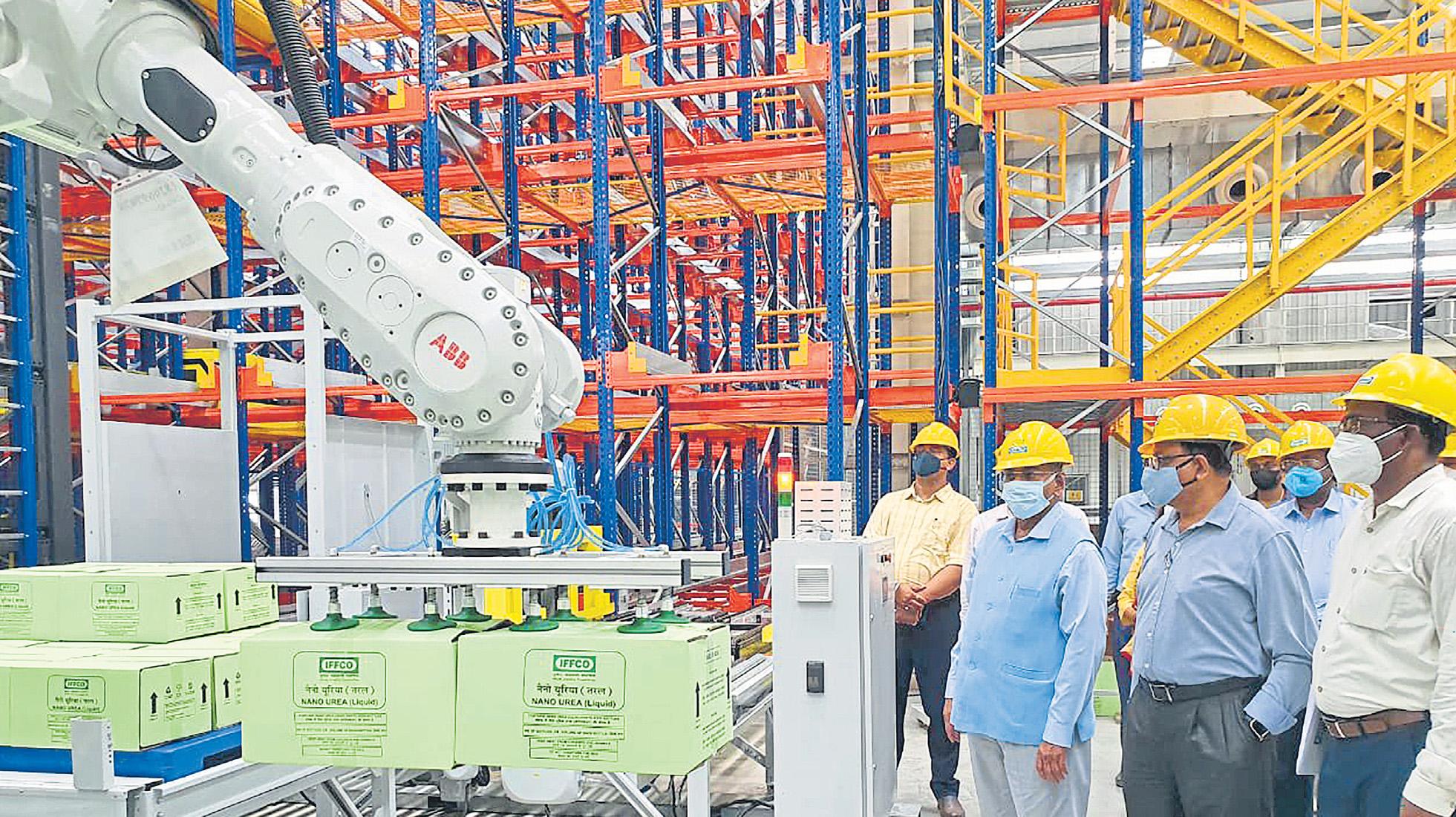
This will be the "innovation of the century for the mankind". That's how the 2020-21 annual report of Indian Farmers Fertiliser Cooperative Ltd (Iffco), India's largest producer of crop nutrients, began. The reference was to nano urea, a fertilizer the company developed. The product has the "power to revolutionize farming and fight climate change," Iffco further stated.
In August 2021, Iffco commercially launched the world's first nano urea. It claimed that a 500ml bottle of nano urea is as effective as a 45kg bag of urea. While a bottle of nano urea costs just 225, the actual cost of a bag of urea, including government subsidies, is ₹3,000.
Urea is the most popular crop nutrient the most important source of nitrogen for crops which is required for photosynthesis and vegetative growth.
With two sprays, farmers could drastically reduce the use of granular and heavily subsidized urea by almost half. The fertilizer ministry estimates that a 25% replacement of regular urea with non-subsidized nano urea could save the exchequer up to 20,000 crore every year.
A few numbers show why nano fertilizers are critical. The subsidy outgo for urea was a staggering 2.5 trillion in the previous two years, 2021-22 and 2022-23 Farmers pay 2022-23. Farmers pay less than 300 per 50kg bag of urea while it costs 3,000 to produce one. Of the 35 million tonnes (mt) of urea applied by farmers every year, imports account for about 8-9mt.
In 2021-22 and 2022-23, Iffco produced 77 million bottles of nano urea and sold 54 million bottles to farmers. The target is to raise annual production to 440 million bottles by 2025, which can cut use of regular urea by a staggering 20mt. This would result in self-sufficiency in urea production and no imports-a major feat, if achieved.
This story is from the {{IssueName}} edition of {{MagazineName}}.
Start your 7-day Magzter GOLD free trial to access thousands of curated premium stories, and 9,000+ magazines and newspapers.
Already a subscriber ? Sign In
This story is from the {{IssueName}} edition of {{MagazineName}}.
Start your 7-day Magzter GOLD free trial to access thousands of curated premium stories, and 9,000+ magazines and newspapers.
Already a subscriber? Sign In

Reduction of energy costs in the telecom sector
With telecom infrastructure companies looking for newer ways to cut back on energy costs, battery restoration technology provides telecom infrastructure firms with a viable, economical and green solution for uninterrupted power supply

Skip cheese and sip wine in Switzerland
Beyond chocolates and cheese, there's another Swiss gem to discover — vineyards that have been passed down through the generations
Bankers aren't always frank about bank regulation
The 'world's banker' Jamie Dimon, CEO of JPMorgan Chase, speaks his mind even if it means taking swipes at US regulators.

Baku: A climate breakthrough looks depressingly bleak today
The success of fossil fuel-favouring politics threatens the planet

Global solidarity levies can play a vital role in our climate efforts
Solidarity taxes could support redistributive measures and optimize how we collectively tackle a great challenge of our times

Speak for the Earth: It's the least we should do
This year's Booker prize winner turns our gaze to the planet from orbit and reminds us of the climate disaster that looms. Can odes sung to Earth move the world to act in its defence?
Aim for an efficient carbon market right from the start
India's economy is projected to grow dramatically over the next few decades. In nominal terms, it may double in size by 2030. This is exciting, but it comes with a significant risk.
Why health insurers refuse to cover certain treatments
While 12 modern treatments are covered, many advanced procedures are yet to be included
Address economic distress with structural reforms and not doles
Cash transfers may offer short-term relief but raising worker incomes is the only lasting solution
FUNDING FOREIGN EDUCATION: SHOULD YOU SAVE OR BORROW?
Education financing needs vary, but early planning is key to building your desired corpus